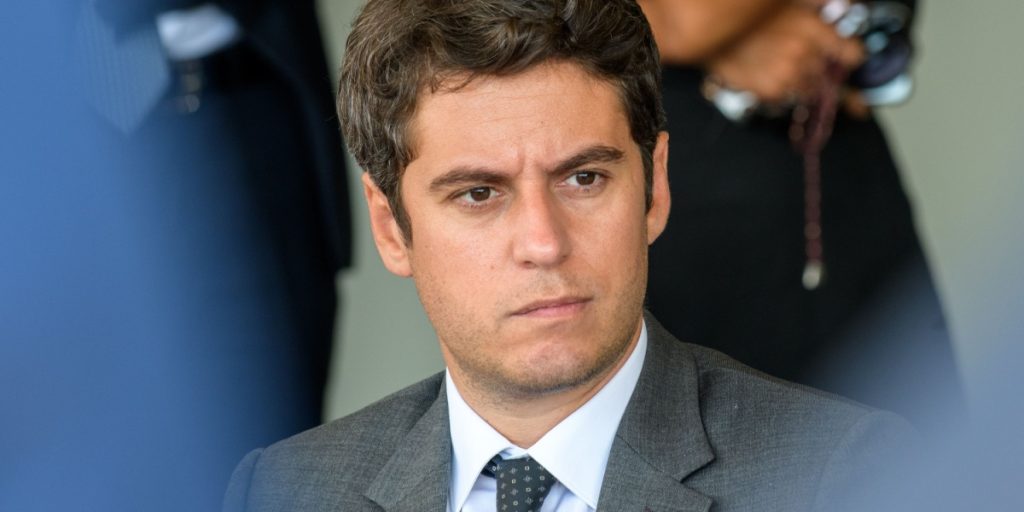French Prime Minister Gabriel Attal has accused the far-right National Union of having a “moral contract” with Russia.
Others are reading now
In a televised debate with Jordan Bardella, leader of the far-right National Union, French Prime Minister Gabriel Attal accused the party of having a “moral contract” with Russia.
This accusation comes just days before the European elections.
Allegations of Russian Influence
“You are bound by a moral contract with Russia,” Attal asserted, suggesting that Russia needed a European party to undermine the EU from within.
He reminded viewers of the 9 million euro loan the National Union received from Russia in 2014 under Marine Le Pen’s leadership.
Also read
Although the money has been repaid, Attal argued that the party remains compromised in its votes and decisions in the European Parliament due to mutual interests with the Kremlin.
Jordan Bardella refuted the accusations, claiming his party has consistently condemned Russia’s aggression against Ukraine.
He admitted, however, that like many political leaders, he had “made a mistake” in underestimating Vladimir Putin’s intentions towards the EU, attributing this to a “collective naivety.”
Political Context
The debate between Attal and Bardella covered a wide array of issues, including the economy, trade, agriculture, immigration, and the war in Ukraine.
Attal sought to portray the National Union as antagonistic towards Europe, while Bardella criticized the past seven years of European leadership under President Emmanuel Macron as disastrous.
The debate takes place at a critical time, with the National Union’s popularity surging above 30%.
Attal’s participation was seen as a strategic move to shift the dynamics and attract undecided voters towards the center. Bardella, meanwhile, reiterated his commitment to rewriting EU treaties and fighting what he terms “Fonderlandism.”


